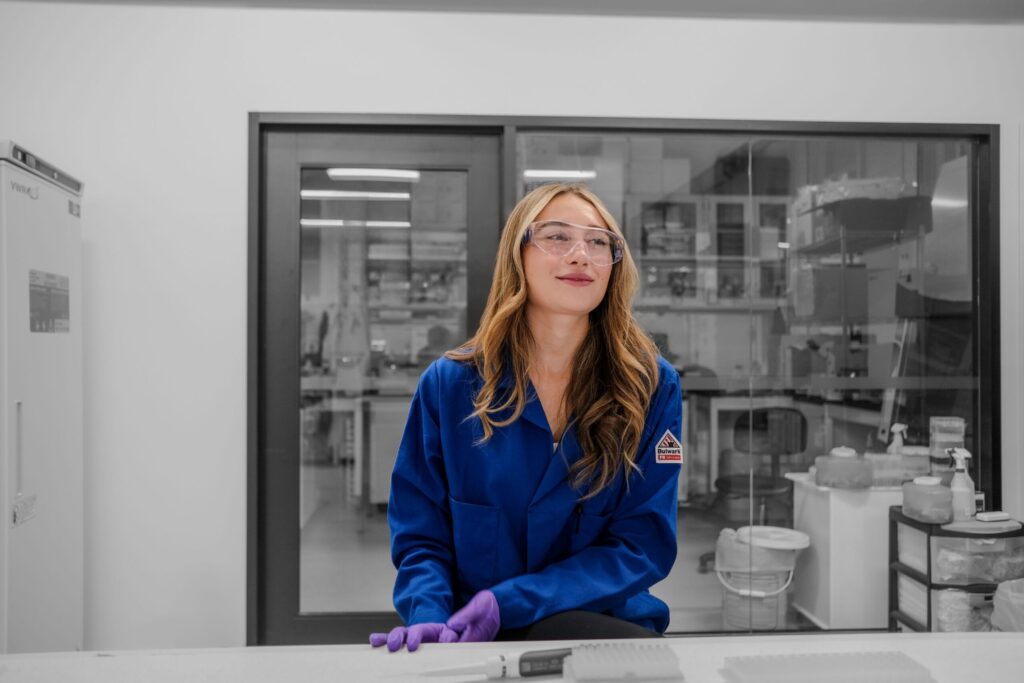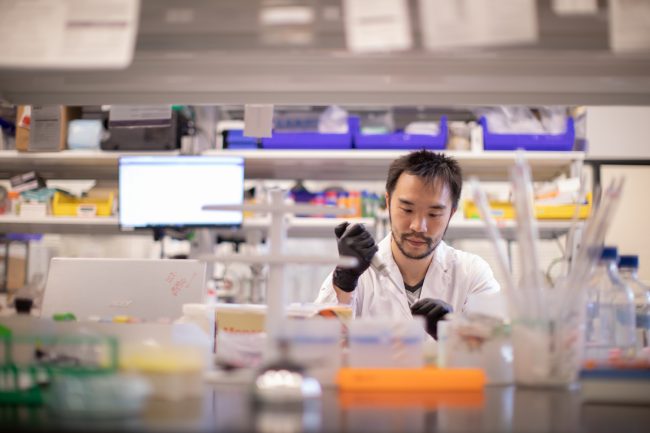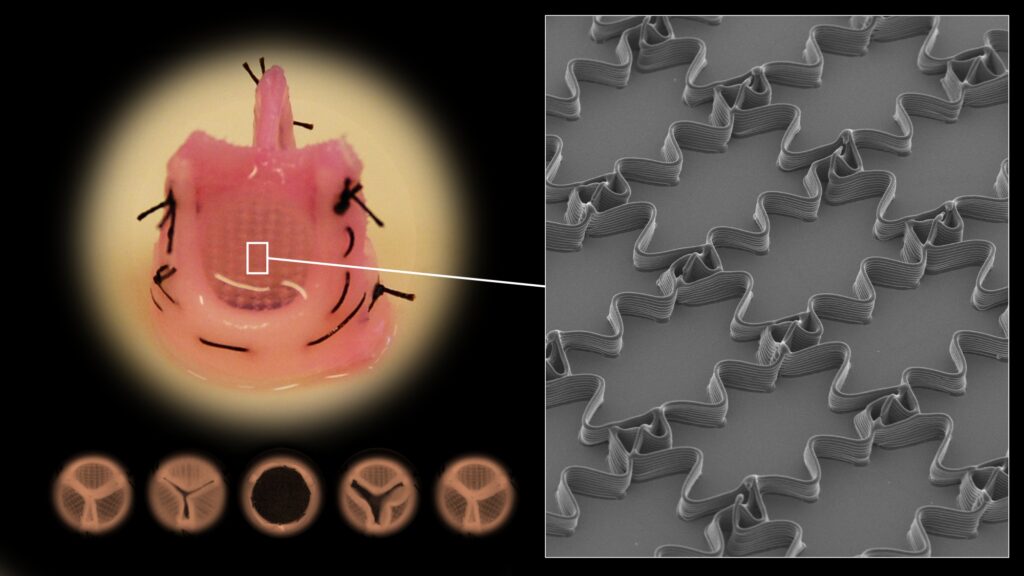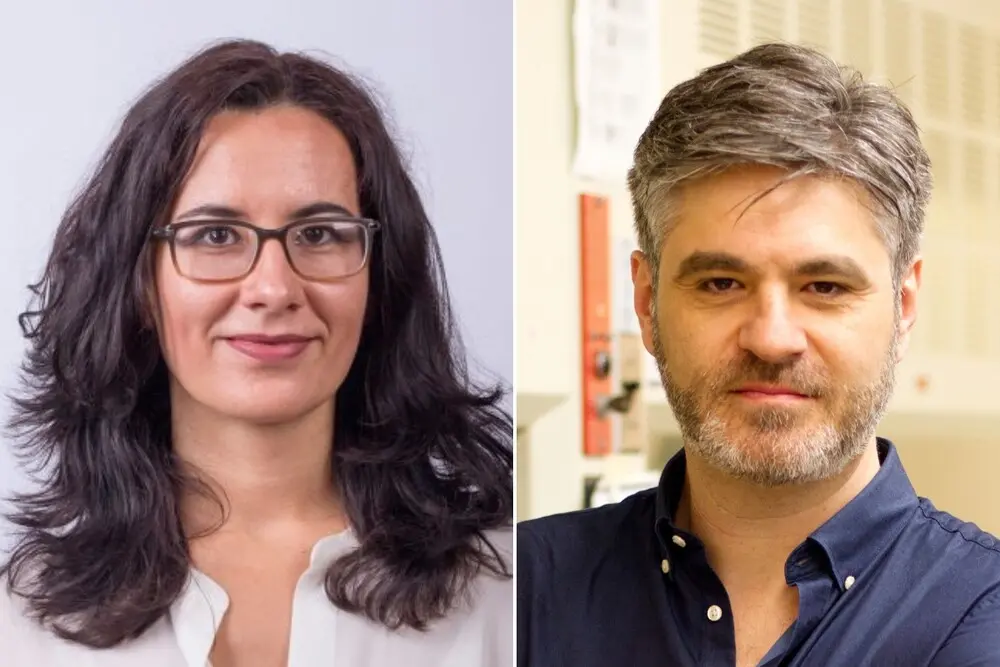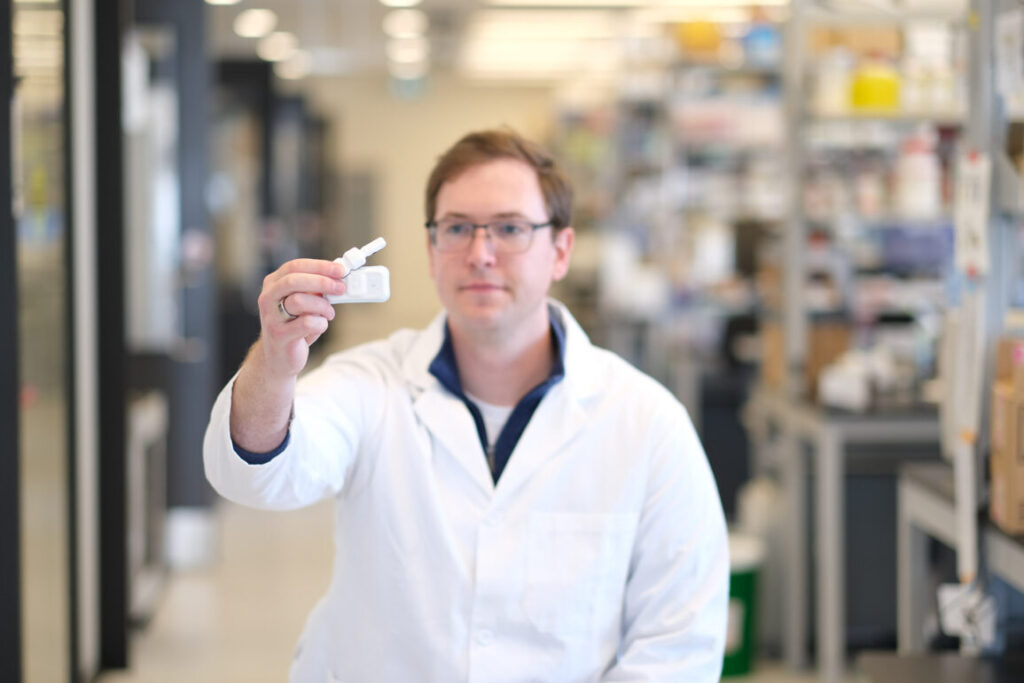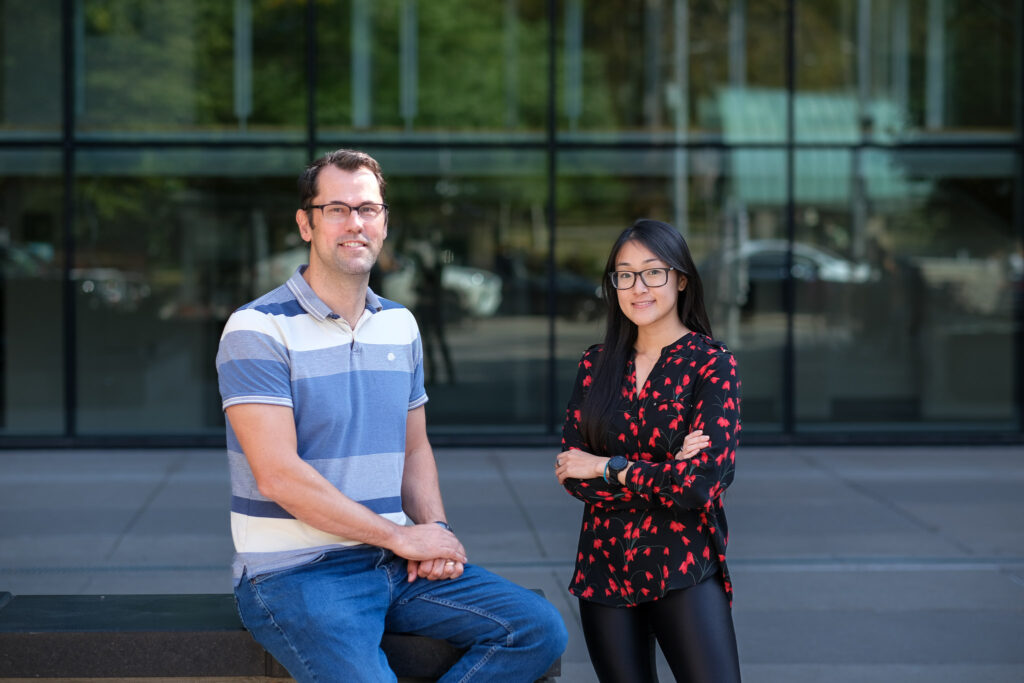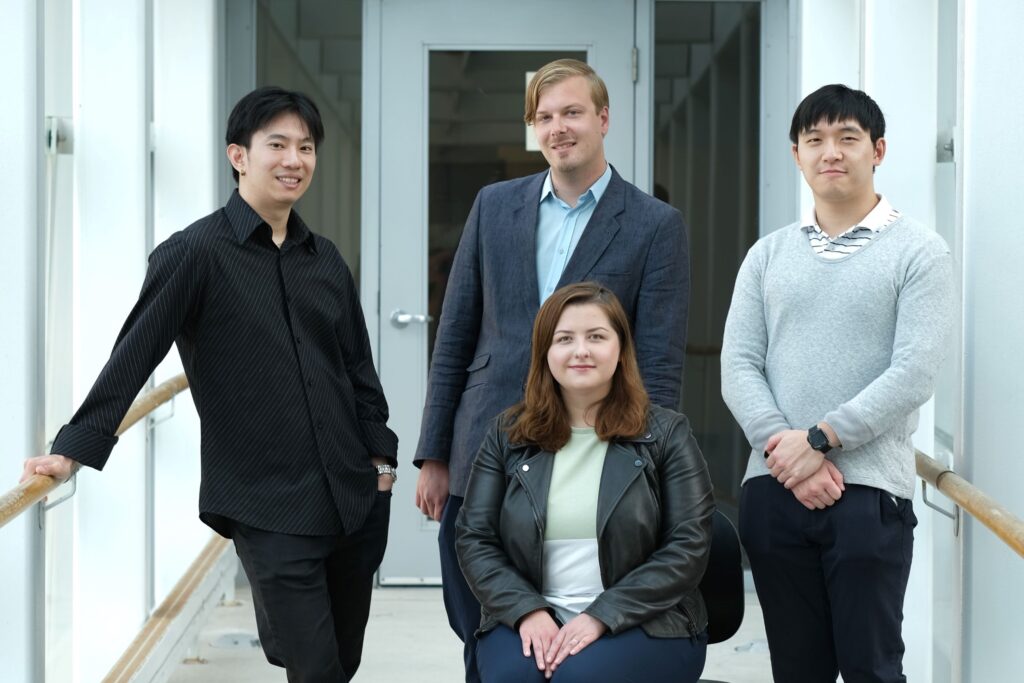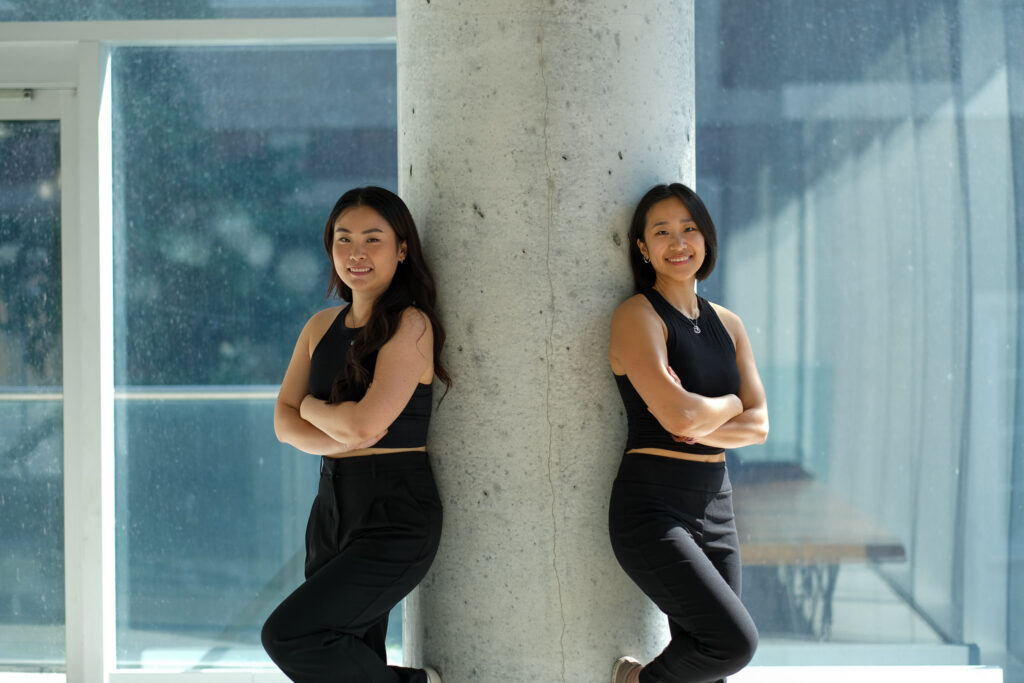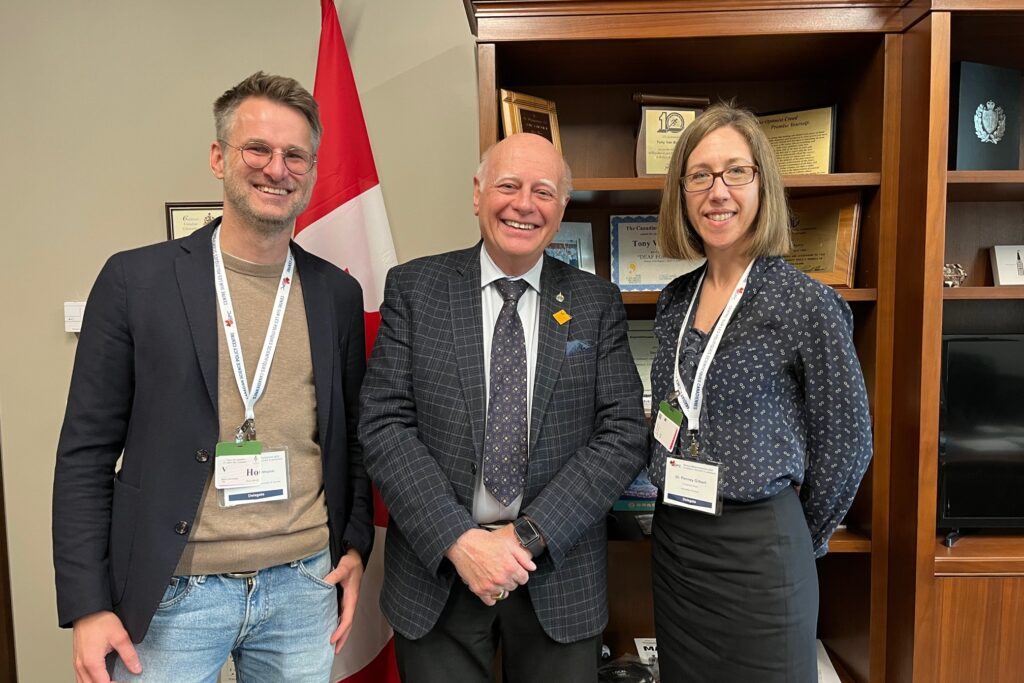Latest News
BME welcomes new faculty member Professor Freeman Lan
Dr. Freeman Lan has recently joined the Institute of Biomedical Engineering at the University of Toronto as an Assistant Professor.
‘DNA origami’ may bring researchers one step closer to a cancer vaccine
BME professor Leo Chou creates DNA nanostructures that can serve as a platform to deliver instructions to a body’s immune cells in a way that would elicit an effective response towards a disease. His team has developed a new way to visualize 3D nanostructures made of human DNA.
Engineering soft connective tissues with biomimetic mechanical properties
A team of researchers at the University of Toronto, led by Professor Craig Simmons, has introduced a novel method to engineer soft connective tissues with prescribed mechanical properties similar to those of native tissues. This finding, published in the journal Advanced Functional Materials, can propel the generation of more realistic tissues and organs for regenerative medicine in the future.
Donnelly Centre to House New Self-Driving Lab to Innovate Next-Generation Human Tissue Models
The Donnelly Centre for Cellular and Biomolecular Research is home to a new self-driving lab (SDL), borne out of a $200 million grant from the Canada First Research Excellence Fund to the Acceleration Consortium.
Wearable medical device redefines cardiovascular monitoring
A team of researchers led by Professor Daniel Franklin (BME) unveiled a cutting-edge wearable medical device designed to revolutionize cardiovascular monitoring. This innovative device integrates multiple sensory modalities to provide a comprehensive assessment of hemodynamic status, surpassing conventional blood pressure monitoring.
New research paper unveils breakthrough sensor for real-time cellular analysis in living zebrafish embryos
In a study published today, researchers from the University of Toronto have introduced an innovative biosensor, Apollo-NADP+, in living zebrafish embryos to track molecular metabolism. The study, featured in Science Advances, sheds light on the potential applications of this cutting-edge technology in understanding cellular processes and addresses a critical question in diabetes research.
Meet the 2023 Leadership of Biomedical Engineering Students’ Association
Introducing the Movers and Shakers of the Biomedical Engineering Students’ Association (BESA)! Meet the visionary leaders steering the Biomedical Engineering Students’ Association towards a brighter, healthier future in 2023.
U of T Researchers Dispel Long-Standing Theory Guiding Nanoparticle Treatment of Tumours
Researchers at the University of Toronto have developed an alternative theory to explain how nanoparticles enter and exit the tumours they are meant to treat. This new principle debunks a leading theory in cancer nanomedicine that has guided research for nearly four decades.
Introducing the 2023 Toronto Biomedical Engineering Conference Chairs: Zi Xuan Zhang and Eileen Zhong
As ToBE embarks on its latest chapter in 2023, we are proud to introduce the leadership duo at the helm of this year’s event: Zi Xuan Zhang and Eileen Zhong.
Science Meets Parliament: Building relationships between scientists and Parliamentarians in Canada
Dr. Penney Gilbert was one of the delegates selected to participate in the 2023 SMP program, aimed to bridge the gap between scientific research and policy development by fostering direct engagement between scientists and parliamentarians.
